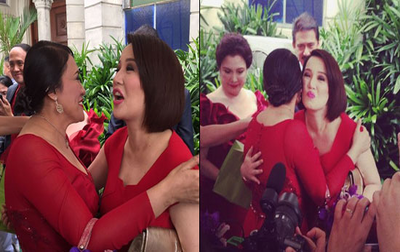Being born and raised in Davao, I am proud to say that life is here. When I went to Manila months ago, I feel so honored when the receptionist on the hotel we stayed in told me that “Sana may Duterte din kami dito sa Maynila”. Having heard stories from my older folks that Davao was once a nest for criminals, I felt different because that was not the Davao I know. Simply speaking, Duterte has transformed Davao into one of the most livable cities in the world. For Davao residents, the issue of the Davao Death Squad (DDS) is not new to us. Some of us are even thanking the feared peacemaker in maintaining peace, order and security in our hometown. Although its existence is not that explicitly confirmed, what gave rise to the power of the Davao Death Squad to instill fear among us Davaoeños, which led us to believe that criminals have no place in the city except in jails, detention centers, and when DDS is already involved, in funeral parlors?
Speaking from my observation as a Davaoeña, Duterte led us to believe that we must follow the law or else we will suffer. In a place which used to be a criminal’s nest, it is believed that diplomacy might not do the trick in introducing peace and order. Although I am not associating Duterte with the Davao Death Squad, I can’t still erase the possibility of them being associated. During his rule, most of the criminals have been wiped out from the city and that is something I am thankful of. The way I see it, Davao City is under a positive power play governed by an iron hand. In some ways, I can see him as a dictator, being steadfast in banning the criminals doing their thing on Davao soil.
Taylor (2010) would tell us that every one of us became a product of sublimated symbolic violence, and also simulated violence. This is true, given that we are made to believe that we should avoid on doing criminal acts or else we’ll die. The Davao Death Squad became a means to inflict violence to achieve a certain means. As a result, we fear to commit crimes and Duterte (or whoever is/are the proponent/s of DDS) has achieved their goal on maintaining peace, security and order in Davao. This is a manifestation of positive power play. This is symbolic and simulated violence being put into good use.
My position with regard to the said issue is that I agree with the effects of the so-called feared peacemaker in Davao. Although human rights advocates would not agree with my stand, I shout practicality reasons. It’s not that human rights should be put into waste, but on committing the act, did these criminals thought of respecting the rights of the people to live in peace? Yes, violence is not a good act in itself. Yet, the way it is being used, it produced a good effect in the lives of Davaoeños and Davaoeñas. Think of utilitarianism. With all that has been said, I say yes to the feared peacemaker.
REFERENCES:
Taylor, G. (2010). The new political sociology: Power, ideology and identity in an age of
complexity (p. 139-140). London, United Kingdom: Palgrave Macmillan.





